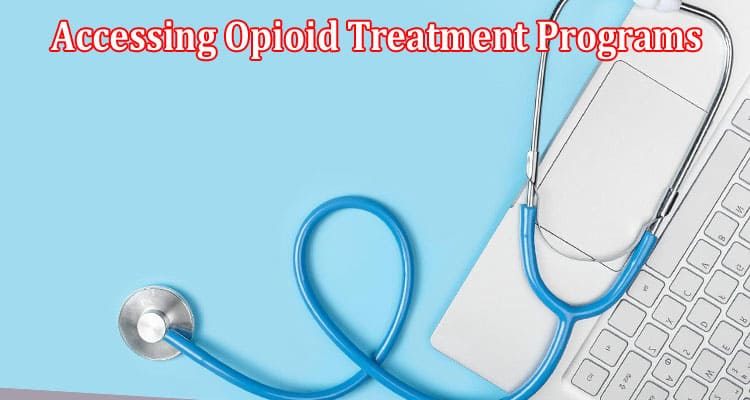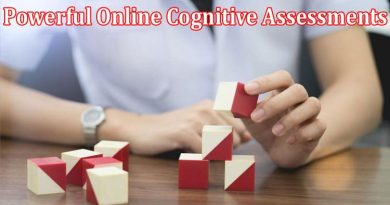Overcoming Barriers to Accessing Opioid Treatment Programs
Opioid addiction has become a significant public health crisis in many countries worldwide. While efforts to address the problem have been made, one of the biggest challenges has been ensuring that individuals struggling with opioid addiction have access to effective treatment options.
Opioid treatment programs, which include medication-assisted treatment (MAT), have been shown to be effective in reducing opioid use and overdose deaths. However, there are several barriers that prevent people from accessing these programs.
This blog will explore some of the most common barriers to accessing opioid treatment programs and provide strategies for overcoming them.
Common Barriers to Accessing Opioid Treatment Programs
Access to effective opioid treatment programs, such as medication-assisted treatment (MAT), is essential for individuals struggling with opioid addiction. However, despite the proven efficacy of these programs, there are many barriers that prevent people from accessing them.
Some of the most common barriers to accessing opioid treatment programs include the following:
stigma
lack of insurance or financial resources
limited availability of treatment facilities
logistical challenges such as transportation and childcare.
Additionally, there may be systemic barriers related to race, ethnicity, and socioeconomic status that further limit access to these programs for some individuals. Understanding and addressing these barriers is critical to increasing access to opioid treatment and reducing the devastating impact of the opioid epidemic.
Addressing these barriers is understanding what they are. For example, one common barrier is a stigma associated with opioid use disorder (OUD). According to the Substance Abuse and Mental Health Services Administration’s National Survey on Drug Use and Health (NSDUH), approximately 1 in 12 adults (8 million) aged 18 or older had an OUD in 2017.
This means that many people who might benefit from MAT may not seek it out because they don’t want others to know about their addiction or because they are concerned about being ostracized by friends or family members if they do seek help. Another barrier is the stigma associated with mental health disorders and the medications used to treat them.
People who suffer from mental health conditions often feel shame or embarrassment about their condition and may be reluctant to take medications that could make them feel better because they fear being stigmatized by others.
Strategies for Overcoming Barriers, Such as Transportation and Stigma
Opioid addiction is a complex issue that affects many communities across the country. The barriers to accessing opioid treatment programs can be complex, but there are strategies that can be implemented to overcome them.
A common barrier is transportation, which can make it difficult for individuals to attend appointments and receive treatment. One solution is to provide transportation services, such as free or low-cost rides, to and from treatment facilities. This can be done through partnerships with local transportation providers, such as taxi or rideshare companies, or by using funds from grants or government programs.
Another barrier is stigma, which can prevent people from seeking treatment or disclosing their addiction to others. To address this, it is important to promote awareness and education about opioid addiction and treatment options.
This can be done through public health campaigns, community outreach programs, and education initiatives in schools and healthcare settings. It is also important to create a welcoming and non-judgmental environment in treatment facilities where individuals feel comfortable seeking and receiving help.
Other strategies for overcoming barriers to accessing opioid treatment programs include:
Increasing the availability of treatment facilities.
Offering telemedicine and virtual treatment options.
Providing financial assistance for those who cannot afford treatment.
By implementing these strategies, it is possible to increase access to opioid treatment programs and help individuals overcome addiction and lead healthy, fulfilling lives.
Advocating for Increased Access to Treatment
Advocating for increased access to opioid treatment programs can be achieved through various ways, such as:
One way to raise awareness and advocate for increased access is through community organizing and engagement. This can involve hosting town halls, organizing rallies, and partnering with local organizations to raise awareness about the opioid epidemic and the need for effective treatment options.
Another important strategy is to engage with policymakers at the local, state, and federal levels to advocate for increased funding for addiction treatment programs. This can include meeting with lawmakers, writing letters and emails, and participating in public comment periods to urge policymakers to prioritize addiction treatment funding in budget allocations.
Advocates can also work to promote policies that support access to evidence-based treatment, such as expanding insurance coverage for addiction treatment services and increasing the availability of medication-assisted treatment (MAT) options.
By advocating for increased access to treatment, we can work towards a future where individuals struggling with opioid addiction have the support and resources they need to overcome their addiction and lead healthy, fulfilling lives.
Conclusion
While there are numerous barriers to accessing opioid treatment programs, such as stigma, lack of resources, and inadequate insurance coverage, it is essential that we continue to work towards breaking down these barriers. With opioid addiction rates continuing to rise, it is crucial that individuals have access to the necessary resources and support to overcome their addiction.
By addressing these barriers and expanding access to opioid treatment programs, we can help to reduce the devastating impact of opioid addiction on individuals, families, and communities. It is everyone’s responsibility to ensure that those struggling with opioid addiction have the opportunity to receive the support and care they need to recover and lead healthy, fulfilling lives.
At Confidant Health, we are committed to increasing access to evidence-based treatment for opioid addiction through its telemedicine platform. Our platform provides confidential and convenient access to medication-assisted treatment (MAT) and counseling services, which can help individuals overcome barriers such as transportation, stigma, and limited availability of treatment facilities. By leveraging technology to increase access to treatment, Confidant Health is helping to break down the barriers that prevent individuals from receiving the care they need.




